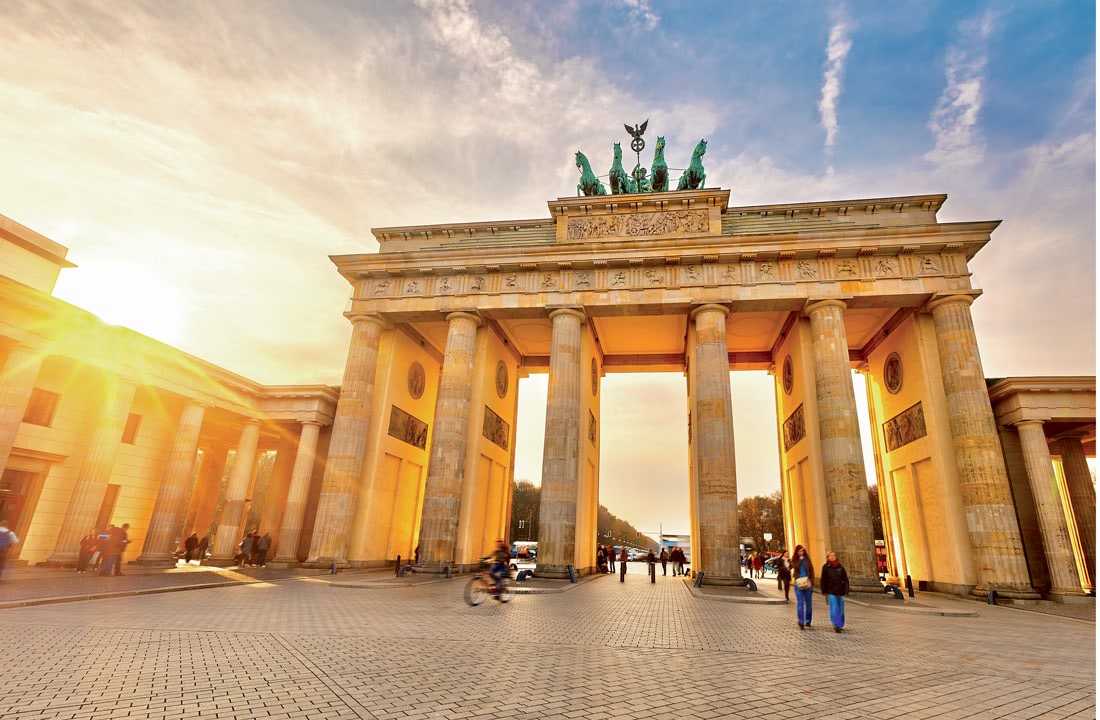Germany is the 5th largest country in Europe with a total area of 357,022 km2, bordering Denmark, Poland, Czech Republic, Austria, Switzerland, France, Belgium, Luxembourg and the Netherlands. This is one of the pillar economies of the European Union, known as the “land of opportunity” when it has a fairly high employment rate among its residents. German higher education also attracts international students thanks to its high quality of education and a number of tuition-free or scholarship policies.
The World Economic Forum voted Germany the world’s best country for young people in 2016. Not only does it have an interesting life, Germany is also among the strongest education systems globally, attracting attracts a large number of students from all over the world to enroll each year. According to UNESCO in 2020, Germany ranked 4th in the number of international students coming to study. According to the Institute of International Education last year, there were more than 324,000 international students du Study Germany to experience education in the most vibrant multicultural educational environment in Europe.

Economics
Germany is the largest economy in Europe and the fourth largest in the world. Many German brands are famous globally and have become reliable pioneers in many areas of the market such as BMW, Mercedes, Audi, Siemens, Bayer… High production level and quality of goods of these companies. “Made in Germany” products are recognized and trusted by consumers around the world. Most of Germany’s exports are products in the fields of electrical engineering, mechatronics, heavy machinery, automobile industry, environmental technology, pharmaceuticals, chemicals… Science and engineering Arts and technology are also Germany’s training strengths.
By maintaining and expanding trade relations around the world, German companies increasingly recruit highly qualified international experts. This opens up prospects and career opportunities for international students to study abroad and graduate in Germany.
Politics
The Federal Republic of Germany was established in 1949. Berlin was chosen as the capital of Germany after the two regions were unified in 1990. Germany is divided into 16 states. Each state has the political freedom to make its own decisions, for example in cultural and educational matters.
Climate
Germany has a temperate continental climate throughout the country with warm summers and cold winters, however prolonged frost or snow is rare. Rain falls all year round. The average monthly daytime temperature in January is 3oC and in July it is 22oC. Extreme temperatures sometimes reach -10oC in winter and 35oC in summer months.
Due to the many different mountain and hill regions, weather changes occur throughout Germany. Even within a radius of 100 km, you can experience large differences in temperature and precipitation. Despite the huge differences in climate you’ll find in Germany, there is a period of time that is generally considered the best to travel. That is from May to September.
Human
Germans tend to be thrifty, reasonable, and respectful of each other’s privacy. They value notions of family and community, often respecting society’s structures and laws. Nowhere is this sense of order more evident than in German business culture. Germans are hard-working, disciplined and efficient, often spending time thinking quite practically about how to solve a problem. They are extremely punctual, value tradition and are highly creative.
Before the 1950s, there were very few ethnic minorities in Germany. At the beginning of the 21st century, more than one-tenth of the German population – about 8 million people – was not German. In 2015 alone, more than 1 million people migrated here. The population structure includes: more than 88% Germans, 3.4% Turks, 1% Italians, Greek, Serb, Russian communities and about 5.5% other ethnicities.
German life expectancy – about 75 years for men and 80 years for women – is among the highest in the world. Germany has a high population density compared to most other European countries. However, this is one of the countries with the lowest birth rates in the world. To prevent long-term population decline, Germany is working to develop policies that encourage increased birth rates – especially by subsidizing child care, providing benefits and incentives. Other taxes for families.
Traffic
Germany has a dense transportation and communication network. Its geographic location at the heart of Europe also makes Germany an important hub for the region’s transportation and communications. Waterways with the main factor being the Rhine River and its canal network, the ports of Hamburg, Weser and Emden; modern railway with high speed up to 250 km/h; motorway direct cross-border connections with similar systems in Denmark, the Netherlands, Belgium, France and Austria; Frankfurt Airport, Germany’s largest, is one of the busiest airports in the world…
Welfare and health care
Germany’s social welfare system is one of the most elaborate and comprehensive in the world. A pioneer in establishing social benefits, imperial Germany in the 1880s became the first country to provide health and accident insurance, benefits and pensions for workers and employees as well as dangerous for miners. Germany’s welfare system has been a model in other countries.
Germany also offers several special insurance systems such as war widows, orphans and farmers. Unemployment insurance is funded through deductions from wages and salaries. Subsidies are made to families with one or more children. Public allowances are granted to people disabled by wartime injuries, whether soldiers or civilians.
At the end of the 20th century, about nine-tenths of the German population had statutory (public) health insurance and the country ranked among the world’s highest in health care costs. paid by the government – about 90% of all costs incurred. Reforms at the beginning of the 21st century made health insurance mandatory for everyone living in Germany. Medical care in Germany is excellent, even rural areas are well served.
Jobs
Job opportunities in Germany during and after their studies are one of the reasons that attract international students to study in this country.
International students studying in Germany are allowed to work up to 120 days a year. Students can contact their university’s student services department or local employment agency for employment information support. There are many part-time jobs for students. However, you should find a job related to your field of study. For example, students majoring in chemistry can work as employees in a school laboratory. German universities also offer many part-time job positions for students such as tutors, academic assistants, administrative staff… Part-time jobs outside of school are popular with students. such as: newspaper delivery, waitress, bartender, babysitter, ticket seller at cultural and entertainment venues… If you earn more than 450 EUR/month from a part-time job, you must pay tax.
Germany has a vibrant economy and is home to thousands of companies in many industries, so job opportunities are abundant for university graduates with good expertise and skills. Students from non-EU countries can work in Germany by extending their residence permit for up to 18 months after graduation. During this period, if you find a job with a minimum 1-year labor contract, you can apply for a residence permit valid for 4 years.
Job opportunities – part-time or full-time – are more open to people with German proficiency.





